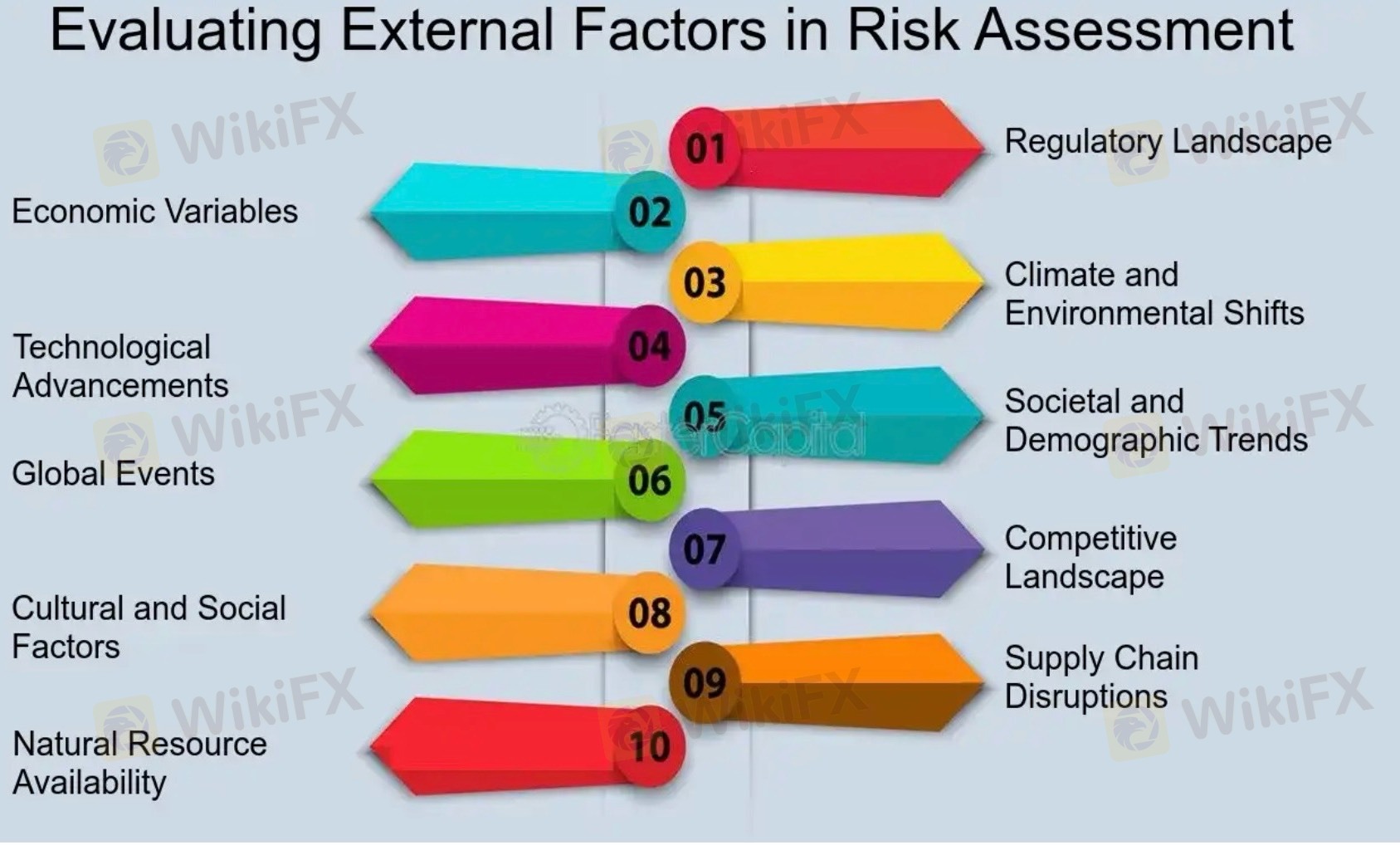
2025-02-18 01:03
IndustriaIgnoring macroeconomic events in risk assessment
#forexRiskTip
Ignoring macroeconomic events in risk assessment is a critical mistake, as these events can significantly impact asset prices, market sentiment, and overall volatility. Here’s why it’s risky and how to incorporate macroeconomic analysis into your trading strategy:
Risks of Ignoring Macroeconomic Events:
1. Increased Volatility and Unpredictable Price Movements: Macroeconomic events such as interest rate decisions, GDP reports, and geopolitical tensions can cause sudden market volatility, leading to rapid price swings.
2. Unexpected Losses: Positions can move sharply against you if major announcements (e.g., central bank policy changes) contradict your trade direction.
3. Correlation Risks: Ignoring macroeconomic events may lead to unexpected correlations between assets (e.g., stock and bond markets reacting simultaneously), increasing portfolio risk.
4. Missed Opportunities: Traders may miss profitable opportunities or fail to capitalize on market trends driven by macroeconomic factors.
5. Currency and Commodity Price Impacts: Events like inflation reports or trade agreements can significantly affect currency and commodity prices, impacting international investments.
6. Overexposure to Systematic Risk: Ignoring macroeconomic risks can result in overexposure to systematic risks affecting entire sectors or markets.
How to Incorporate Macroeconomic Analysis into Risk Assessment:
1. Track Key Economic Indicators: Monitor key economic data such as:
• Interest Rates and Central Bank Decisions
• GDP Growth Rates
• Inflation and Employment Reports
• Trade Balances and Tariffs
• Geopolitical Events and Political Elections
2. Use an Economic Calendar: Follow economic calendars (e.g., Investing.com, Forex Factory) to stay informed about upcoming announcements that may impact market volatility.
3. Understand Market Correlations: Analyze how different asset classes (e.g., equities, bonds, commodities, and currencies) react to macroeconomic changes to better manage portfolio diversification and hedging strategies.
4. Adjust Position Sizing and Leverage: Reduce position sizes or leverage ahead of high-impact events to minimize risk exposure to volatility.
5. Hedging Strategies: Use hedging instruments (e.g., options, futures) to protect against adverse movements triggered by macroeconomic events.
6. Scenario Analysis and Stress Testing: Conduct scenario analysis to understand the potential impact of different macroeconomic scenarios on your portfolio.
7. Regular Review and Adaptation: Continuously review and adapt your trading strategy based on evolving macroeconomic trends and geopolitical developments.
Would you like help setting up alerts for key economic events or strategies for hedging macroeconomic risks?
Me gusta 0
FX4183914356
Trader
Contenido delicado
Industria
Trabajo de WikiFX
Industria
Trabajo a tiempo parcial
Industria
gana sin invertir solo por usar una app
Industria
Evento de subsidio en México
Industria
gana 100 dólares con un minimo de inversión de 4 dólares
Industria
Evento de subsidio de Colombia
Categoría del foro

Plataforma

Exposición

Agente

Contratación

EA

Industria

Mercado

Índice
Ignoring macroeconomic events in risk assessment
 India | 2025-02-18 01:03
India | 2025-02-18 01:03#forexRiskTip
Ignoring macroeconomic events in risk assessment is a critical mistake, as these events can significantly impact asset prices, market sentiment, and overall volatility. Here’s why it’s risky and how to incorporate macroeconomic analysis into your trading strategy:
Risks of Ignoring Macroeconomic Events:
1. Increased Volatility and Unpredictable Price Movements: Macroeconomic events such as interest rate decisions, GDP reports, and geopolitical tensions can cause sudden market volatility, leading to rapid price swings.
2. Unexpected Losses: Positions can move sharply against you if major announcements (e.g., central bank policy changes) contradict your trade direction.
3. Correlation Risks: Ignoring macroeconomic events may lead to unexpected correlations between assets (e.g., stock and bond markets reacting simultaneously), increasing portfolio risk.
4. Missed Opportunities: Traders may miss profitable opportunities or fail to capitalize on market trends driven by macroeconomic factors.
5. Currency and Commodity Price Impacts: Events like inflation reports or trade agreements can significantly affect currency and commodity prices, impacting international investments.
6. Overexposure to Systematic Risk: Ignoring macroeconomic risks can result in overexposure to systematic risks affecting entire sectors or markets.
How to Incorporate Macroeconomic Analysis into Risk Assessment:
1. Track Key Economic Indicators: Monitor key economic data such as:
• Interest Rates and Central Bank Decisions
• GDP Growth Rates
• Inflation and Employment Reports
• Trade Balances and Tariffs
• Geopolitical Events and Political Elections
2. Use an Economic Calendar: Follow economic calendars (e.g., Investing.com, Forex Factory) to stay informed about upcoming announcements that may impact market volatility.
3. Understand Market Correlations: Analyze how different asset classes (e.g., equities, bonds, commodities, and currencies) react to macroeconomic changes to better manage portfolio diversification and hedging strategies.
4. Adjust Position Sizing and Leverage: Reduce position sizes or leverage ahead of high-impact events to minimize risk exposure to volatility.
5. Hedging Strategies: Use hedging instruments (e.g., options, futures) to protect against adverse movements triggered by macroeconomic events.
6. Scenario Analysis and Stress Testing: Conduct scenario analysis to understand the potential impact of different macroeconomic scenarios on your portfolio.
7. Regular Review and Adaptation: Continuously review and adapt your trading strategy based on evolving macroeconomic trends and geopolitical developments.
Would you like help setting up alerts for key economic events or strategies for hedging macroeconomic risks?
Me gusta 0
Yo también quiero comentar.
Enviar
0Comentarios

No hay comentarios todavía. Haz el primero.

Enviar
No hay comentarios todavía. Haz el primero.